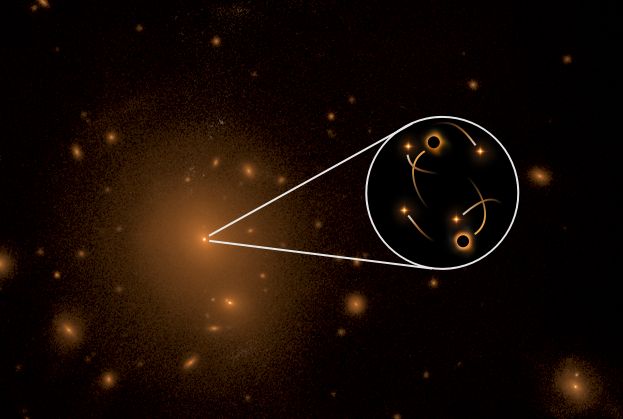KETJU
The KETJU project funded by the European Research Council (ERC) and the Academy of Finland (AoF) studies the dynamics and impact of supermassive black holes using numerical simulations. The code making these simulations possible is publicly available.
Other research topics of our group members include the formation and evolution of the Local Group of galaxies, the formation and evolution of stellar clusters, the formation of the first supermassive black holes and the formation and evolution of galaxies.
Latest News
New group members join the KETJU project
The research group welcomes two postdocs, Dr. Bastián Reinoso, Dr. Toni Tuominen and one PhD student, M.Sc. Max Mattero, who all have joined the group to work on KETJU related research projects.
New group members: The summer students and visiting students for 2024 have joined the group
The research group welcomes Rilla Laitila, Roosa Heiskanen, Meri Teeriaho, who have joined the group for three months over the summer period. Rilla, Roosa and Meri will be working on their respective Master thesis over the summer. In addition, Jehanne Delhomelle (visiting student from Université Paul Sabatier - Toulouse III) has been working in the group for four months on her Bachelor thesis.
Published Article: RABBITS - II. The impact of AGN feedback on coalescing supermassive black holes in disc and elliptical galaxy mergers
In this article we systematically study the impact of AGN feedback on the evolution of a coalescing supermassive black holes in both disk-disk and elliptical-elliptical galaxy mergers. Our results highlight the importance of AGN feedback and its numerical implementation in understanding the SMBH coalescing process.
Contact
For any enquiries, please contact Prof. Peter Johansson
